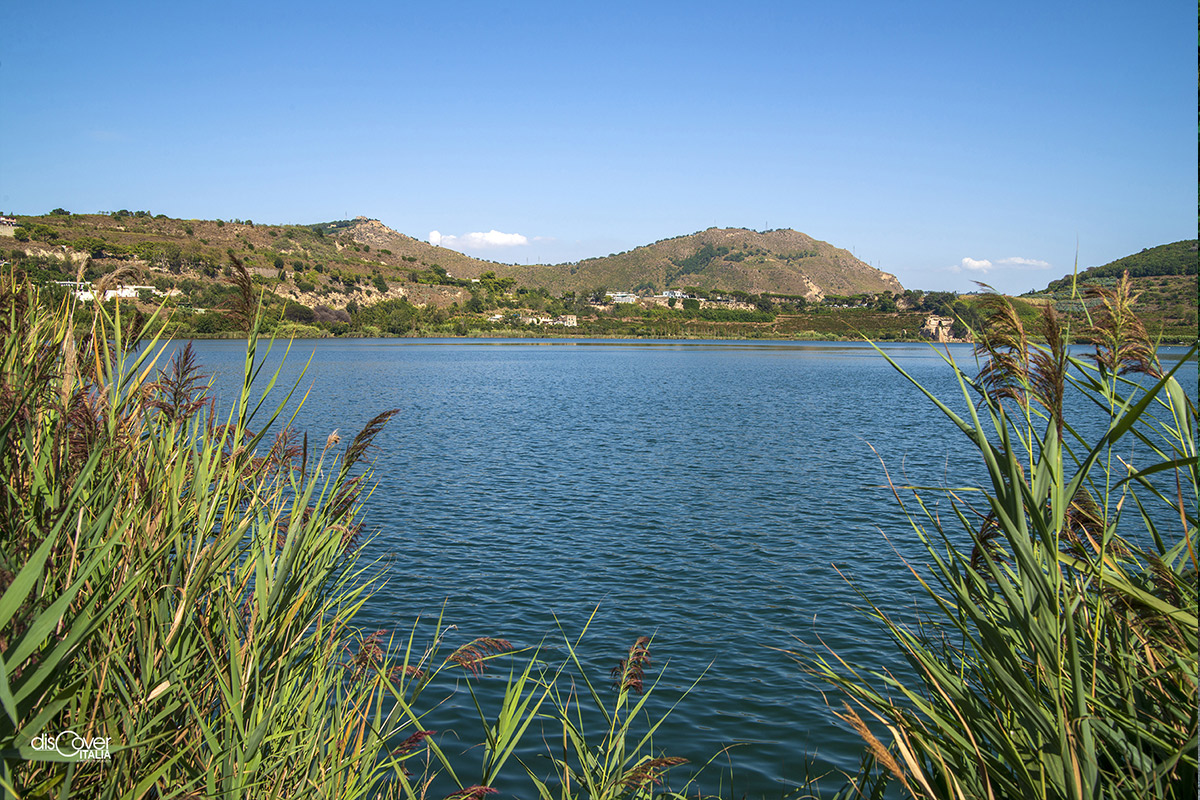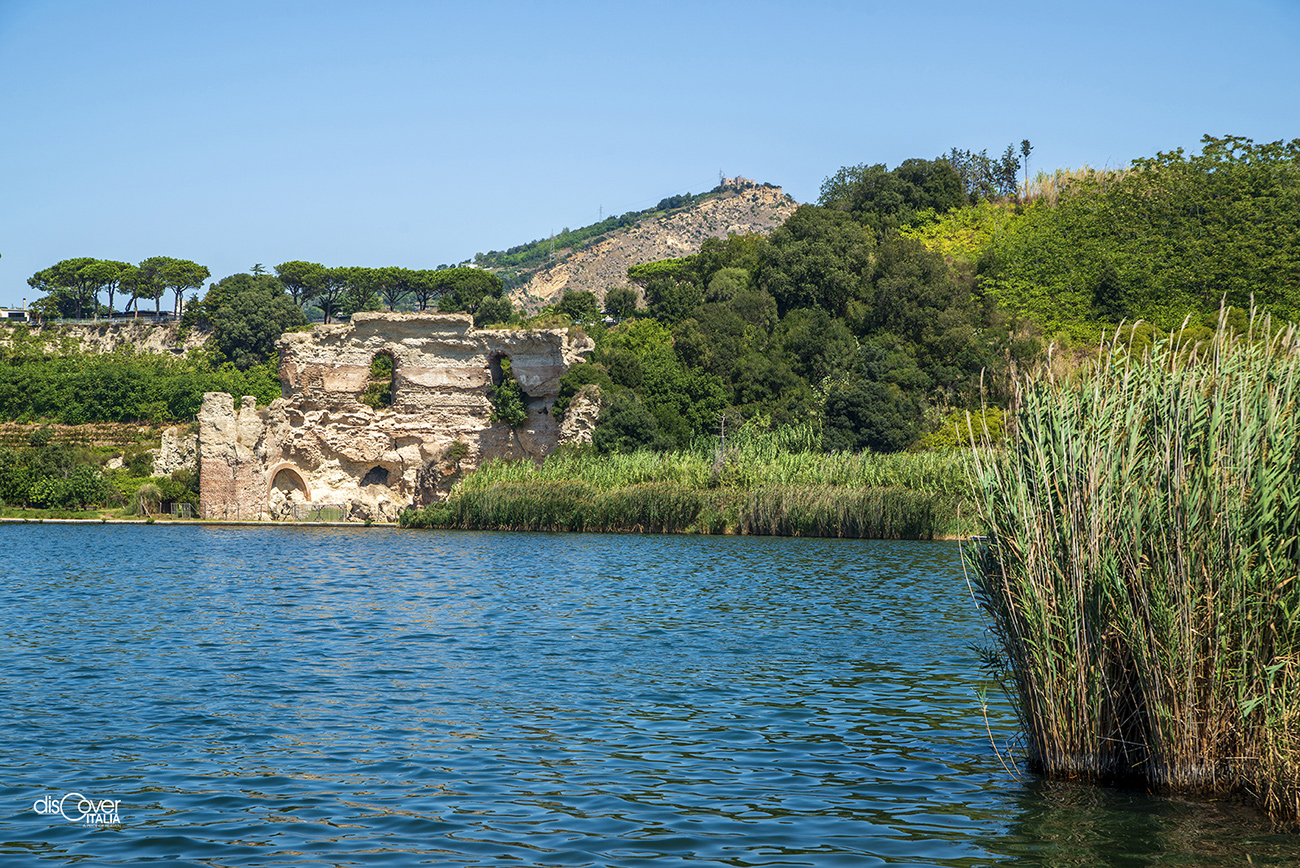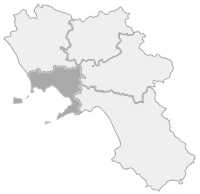Mollards and coots swimming peacefully among the reeds.

Their presence, and that of numerous other species of birds, denies the origin of the lake's name, Averno, from the Greek Aornos, meaning "without birds". This is how it must have appeared to the ancients that named it, due to the volcanic phenomena, which at the time were much more frequent and overwhelming in that area. Not surprisingly, classical mythology had identified in the depths of the lake the entrance of what the Greeks called Hades and the Romans Underworld. Where Aeneas, inspired by the Sibyl, had exceptionally been able to access, willing tospeak with his father Anchises, whom already passed that entrance.
The delicate sound of the water works as background, while the view lays on the hills enclosing the volcanic lake, covered by dense vegetation, compliting the image of a highly evocative oasis. Where nature appears untouched, apart for the few modern artifacts and the imposing construction of the Temple of Apollo, which stands on the shore, a witness to the time that generated the myth.
At the beginning of the imperial age, it was connected to the sea to create, together with the nearby lake Lucrino, the Portus Iulius, but to feed the Avernus is the water that descends from the surrounding hills and that enters the lake basin at a depth of about ten meters. Ernesto Colutta, who knows it well, tells us that at that level there is a sudden change in the water of the lake. Above, up to the surface, the water is clear, populated by fish and aquatic animals and hospitable for the plant species that live there, including some characteristic algae. Below ten meters, however, the depths of Avernus are devoid of plant and animal life forms. And it was perhaps this double identity of the lake that suggested to the ancients the image of the place of passage between the world of the living and that of the dead.
 Periodically, the second part takes the upper hand and takes over the living part of the lake. It happens due to the sulphurous fumes which, when they are copiously released from the depth due to volcanic phenomena, make the water suddenly white as milk and deadly for fish. It also happens, although more rarely, that algae bloom particularly abundantly. And then the water suddenly turns red. Like a lake of blood.
Periodically, the second part takes the upper hand and takes over the living part of the lake. It happens due to the sulphurous fumes which, when they are copiously released from the depth due to volcanic phenomena, make the water suddenly white as milk and deadly for fish. It also happens, although more rarely, that algae bloom particularly abundantly. And then the water suddenly turns red. Like a lake of blood.
Copyright video, foto e testi © 2020



Comments powered by CComment